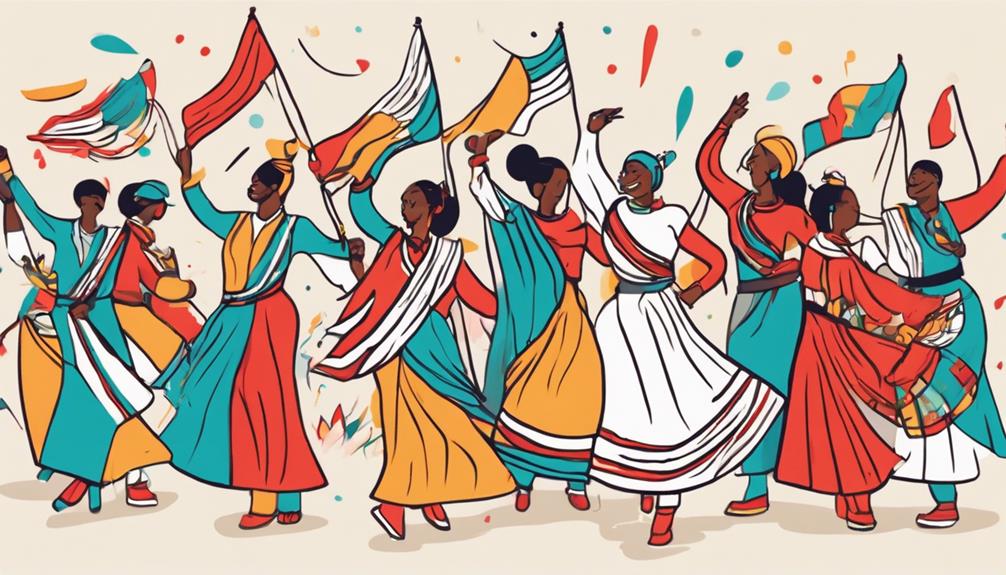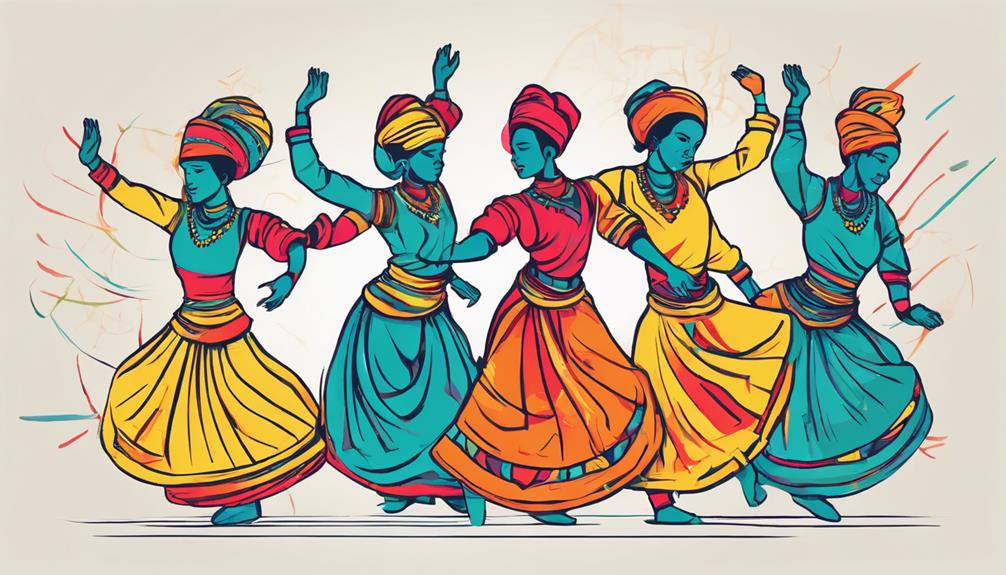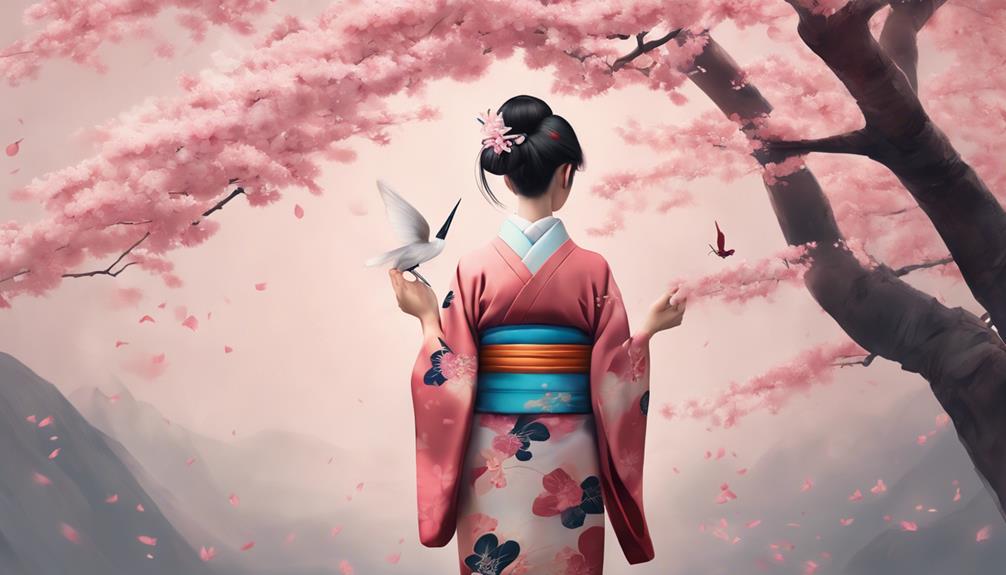Across diverse cultures, the celebration of achievements unveils a tapestry of traditions and customs that reflect the values and aspirations of societies worldwide. From grand ceremonies to subtle gestures, each culture imbues its festivities with a unique blend of symbolism and significance. The varying approaches to acknowledging success not only underscore the rich cultural tapestries that exist but also shed light on the intricate ways in which communities honor and commemorate their accomplishments. In exploring the myriad ways in which achievements are celebrated globally, one can glimpse the profound interconnectedness of human experiences and the universality of the human spirit in pursuit of recognition and validation.
Key Takeaways
- Cultural celebrations like Diwali and Chinese New Year symbolize victories and achievements.
- Feasting and communal gatherings play a vital role in celebrating accomplishments worldwide.
- Symbolic gestures and rituals, such as garlands and hongi, honor achievements in various cultures.
- Traditional celebratory practices like gifting red envelopes and performing the haka showcase diverse ways achievements are commemorated.
Festivals and Ceremonies

Festivals and ceremonies across various cultures serve as significant avenues for commemorating achievements through culturally specific rituals and traditions. These cultural celebrations are deeply rooted in the history and values of the respective societies, reflecting a sense of community, identity, and accomplishment.
In India, Diwali, known as the Festival of Lights, is a prominent cultural event that symbolizes the victory of light over darkness and good over evil. The festival is celebrated with fireworks, sweets, and colorful decorations, signifying the triumph of knowledge and awareness.
Similarly, the Chinese New Year festival is a special event that marks achievements through vibrant traditions such as dragon dances, lantern displays, and family reunions. These customs represent prosperity, luck, and unity within the community.
In the United States, graduation ceremonies are held to honor academic achievements. These ceremonies involve the donning of caps and gowns, the conferral of diplomas, and speeches that inspire graduates to celebrate their hard-earned successes.
Each of these cultural celebrations showcases the unique ways in which achievements are recognized and celebrated across different societies, highlighting the diversity and richness of global traditions in commemorating special events.
Traditional Dance and Music
Traditional dance and music play integral roles in various cultures worldwide, serving as expressions of achievement and cultural identity through dynamic and vibrant performances. In celebrations of success and milestones, traditional dances and music form a significant part of the festivities. Here are some essential points to consider:
- Cultural Expressions: Traditional dances like the Haka in New Zealand and Bharatanatyam in India are deeply rooted in cultural traditions and are performed to commemorate achievements.
- Musical Genres: Music, such as Samba in Brazil and Taiko drumming in Japan, holds a crucial position in celebratory events, adding rhythm and energy to the festivities.
- Indigenous Honoring: Indigenous cultures often use dance and music to honor accomplishments, with ceremonies like the Powwow in Native American communities showcasing traditional dances and songs that reflect their history.
- Heritage Highlights: Folk dances like the Irish Riverdance and the Russian Cossack dance are performed at celebrations to highlight cultural heritage and showcase achievements through artistic expressions.
Feasting and Banquets

How do feasting and banquets serve as significant cultural practices in commemorating achievements across diverse societies worldwide? Feasting and banquets play a crucial role in celebrating accomplishments in various cultures, providing a platform for communal gatherings that foster unity and shared prosperity. These celebratory meals often showcase traditional dishes and delicacies, deeply rooted in cultural significance and heritage. The act of sharing food during these feasts symbolizes not only abundance but also a sense of togetherness and appreciation for the achievements being honored.
To further engage the audience, let's explore how feasting and banquets are integral to celebrating achievements in different cultures:
| Aspects | Description |
|---|---|
| Social Media | In modern times, social media platforms are increasingly used to document and share celebratory feasts, enabling widespread participation and cultural exchange. |
| Cultural Exchange | Feasting and banquets provide opportunities for cultural exchange through the sharing of traditional recipes, cooking methods, and culinary customs. |
Communal Gatherings and Parades
Communal gatherings and parades serve as integral cultural events that reflect societal achievements and foster community cohesion through shared celebrations and displays of cultural pride. These events are diverse across different cultures, each with its unique customs and traditions:
- In Chinese and Indian cultures, communal gatherings involve family reunions, feasting, and gift exchanges to celebrate achievements, emphasizing the importance of familial ties and shared prosperity.
- Parades like the Carnival in Brazil or Mardi Gras in New Orleans showcase cultural achievements through vibrant displays of music, dance, and costumes, uniting communities in festive extravaganza.
- Traditional dances, music, and performances during communal gatherings symbolize unity and honor the accomplishments of individuals or groups, highlighting the cultural richness and artistic expressions within a community.
- Religious ceremonies and rituals, such as the Japanese Shinto rituals or Native American powwows, mark significant achievements while fostering spiritual connections and cultural preservation.
These communal gatherings and parades not only celebrate achievements but also contribute to the preservation and promotion of cultural heritage and community identity.
Rituals and Symbolic Gestures

Rituals and symbolic gestures play a crucial role in various cultures worldwide, offering insights into the values and beliefs of different societies. Understanding the cultural significance of these practices provides a window into how achievements are honored and celebrated across diverse communities. Exploring traditional celebratory rituals sheds light on the deep-rooted customs that shape communal identities and strengthen social bonds.
Symbolic Gestures in Rituals
Symbolic gestures in various cultural rituals serve as significant markers of respect, gratitude, and celebration for achievements across diverse societies. These gestures hold deep cultural significance and are integral parts of ceremonies honoring accomplishments. Examples include:
- In Japanese culture, bowing shows respect and gratitude for achievements.
- In Indian culture, presenting garlands symbolizes honoring accomplishments.
- In Chinese culture, giving red envelopes with money symbolizes good luck and prosperity.
- In Maori culture, the hongi, or pressing of noses, signifies sharing the breath of life during significant achievements.
Each of these symbolic gestures reflects the unique cultural backgrounds and traditions in which they are practiced, adding richness and meaning to celebrations of success.
Cultural Significance of Rituals
The intricate tapestry of cultural traditions and practices is interwoven with symbolic gestures that hold profound significance in commemorating achievements and milestones. Rituals play a vital role in expressing cultural identity, as they are deeply rooted in the history and values of a community. These rituals can take various forms, such as dance performances, feasting, symbolic gifts, or spiritual ceremonies, depending on the specific cultural context. Symbolic gestures like lighting candles, presenting gifts, or wearing specific attire serve as tangible expressions of honoring accomplishments. Beyond their celebratory nature, these rituals strengthen the cultural identity of the community, fostering a sense of unity, pride, and belonging among its members. Through rituals, cultural heritage is preserved and passed down, ensuring the continuity of traditions across generations.
Traditional Celebratory Practices
Cultural celebrations across diverse societies are characterized by a myriad of traditional practices that embody deep-rooted values and significance, reflecting the unique identities of each community.
- In Chinese culture, gifting red envelopes with money symbolizes good luck and prosperity during celebrations.
- The Maori people of New Zealand perform the haka, a powerful ceremonial dance, to honor significant achievements.
- Diwali, the festival of lights in India, involves lighting oil lamps, fireworks, and sharing sweets to celebrate success and prosperity.
- In Japan, the exchange of business cards (meishi) with a bow demonstrates respect and acknowledgement of accomplishments.
These unique traditions showcase the rich tapestry of celebratory practices worldwide, highlighting the diverse ways in which achievements are honored and shared.
Gift Giving and Exchanging

The exchange of gifts serves as a significant cultural practice worldwide, reflecting values and traditions unique to each society. Understanding the symbolic meanings behind these gifts provides insights into the deep-rooted beliefs and customs associated with celebrating achievements. By exploring various cultural gift-giving traditions, we can appreciate the diverse ways in which accomplishments are acknowledged and honored across different societies.
Cultural Gift Traditions
Across diverse societies, the act of exchanging gifts plays a pivotal role in reinforcing social bonds and expressing sentiments of goodwill.
- In Chinese culture, red envelopes with money symbolize good luck and prosperity.
- Japanese gifts are elegantly wrapped, emphasizing the significance of giving and receiving.
- In Indian culture, gifts during festivals like Diwali and Holi express love and strengthen relationships.
- Indigenous cultures exchange traditional handmade crafts to honor connections and traditions.
These gift-giving practices reflect the heritage and values of each culture, showcasing the importance of reciprocity, respect, and community ties in various parts of the world. The exchange of gifts transcends mere material possessions, serving as a powerful medium for cultural expression and interpersonal connection.
Symbolic Exchange Practices
Symbolic exchange practices through gift giving and exchanging serve as integral components of social interaction across diverse cultural frameworks, embodying profound meanings and values. Gift giving is a common symbolic exchange practice in many cultures, symbolizing gratitude, respect, and honor towards the recipient. The selection of gifts is a thoughtful process, reflecting the relationship between the giver and the receiver and emphasizing the significance of their connection. Specific rituals and traditions accompany the act of gift giving, adding layers of cultural significance. Through symbolic exchange, social bonds are strengthened, goodwill is fostered, and accomplishments are acknowledged in various cultural settings. This practice highlights the importance of meaningful gestures in expressing emotions and maintaining relationships within different cultural contexts.
Public Recognition and Honors
Public recognition and honors play a crucial role in acknowledging exceptional achievements across various cultural landscapes.
- In Japan, the Order of the Rising Sun is a prestigious honor awarded for achievements in various fields, including arts, science, and public service.
- The United States confers the Presidential Medal of Freedom, the highest civilian award, to individuals who have made significant contributions to national interests, world peace, or cultural endeavors.
- In India, the Padma Awards recognize exceptional achievements in fields like literature, sports, arts, and social work, with recipients receiving medals and certificates from the President.
- The Nobel Prizes, established by Alfred Nobel, honor outstanding contributions in six categories, including Peace, Literature, and Physics, with recipients receiving a medal, diploma, and cash prize.
These honors not only recognize individual accomplishments but also serve as events that celebrate excellence and create opportunities for further contributions to society. The significance of these awards transcends borders, symbolizing the universal appreciation for remarkable achievements in diverse fields.
Artistic Expressions and Performances

How do artistic expressions and performances reflect the diverse cultural traditions and creativity worldwide? Artistic expressions and cultural performances serve as integral components of celebrations, reflecting the rich tapestry of traditions and creativity present across different cultures. These forms of expression vary widely, encompassing dance performances, music concerts, theater productions, and visual arts exhibitions. Traditional ceremonies often incorporate rituals, storytelling, and cultural performances to honor achievements and milestones.
Cultural festivals and parades are notable for featuring vibrant displays of colorful costumes, traditional music, and intricate dance routines that serve to commemorate successes. Additionally, art forms such as painting, sculpture, calligraphy, and crafts are frequently utilized to symbolize achievements and convey profound cultural significance. Through these artistic endeavors, individuals and communities are able to express their values, beliefs, and cultural identities in meaningful and visually captivating ways, showcasing the depth of human creativity and the diversity of cultural expressions worldwide.
Religious Observances and Offerings
Different cultures around the world have unique ways of celebrating achievements through religious observances and offerings. Rituals and ceremonies play a crucial role in these practices, often involving symbolic gestures and traditional customs. Spiritual practices are deeply intertwined with these rituals, reflecting the cultural and religious beliefs of each community.
Rituals and Ceremonies
Rituals and ceremonies, deeply rooted in religious observances and offerings, play a significant role in various cultures worldwide as a means to commemorate achievements. These ceremonies are diverse and unique to each culture, reflecting their traditions and beliefs. Some common rituals and ceremonies include:
- Hindu culture: Aarti (offering of light) and prasad distribution.
- Japanese culture: Kagami Biraki (breaking of a sake barrel) in the Shinto tradition.
- Indigenous cultures: Smudging and drumming ceremonies to honor accomplishments.
- Jewish traditions: Bar and Bat Mitzvahs marking significant achievements and coming of age.
These ceremonies not only celebrate achievements but also serve to strengthen cultural identity and bring communities together through shared experiences.
Symbols and Traditions
Symbols and traditions intertwined with religious observances and offerings play a pivotal role in commemorating achievements across diverse cultures worldwide. In Hindu culture, achievements are marked with offerings of flowers, sweets, and incense at home altars or temples, symbolizing devotion and gratitude. Chinese traditions involve the gifting of red envelopes containing money during celebrations, symbolizing good luck and prosperity for the achiever. Native American cultures uphold traditional ceremonies like powwows to honor and celebrate achievements within the community, fostering a sense of unity and pride. Jewish traditions include lighting candles and reciting blessings to signify significant milestones, such as Bar/Bat Mitzvah ceremonies, emphasizing spiritual growth and accomplishment. In Islamic culture, achievements are acknowledged with prayers and communal meals, underlining the importance of gratitude and support within the community.
Spiritual Practices
Religious observances and offerings are integral components of spiritual practices that various cultures employ to commemorate achievements with reverence and cultural significance.
- Prayers, ceremonies, and rituals specific to faith traditions are common ways to celebrate accomplishments.
- Offerings such as incense, candles, flowers, and symbolic items are often used to mark significant achievements.
- Special services or gatherings held in places of worship or community centers are arranged to honor individual or collective successes.
- Spiritual leaders or elders play a role by offering blessings, prayers, or guidance to individuals or groups during these celebrations.
Educational Initiatives and Scholarships
Educational initiatives and scholarships play a crucial role in fostering diversity and reducing opportunity disparities in educational settings. Through educational initiatives, institutions can incorporate multicultural perspectives into their curriculum, promoting a more inclusive learning environment. Scholarships targeted towards underrepresented communities help bridge the opportunity gap in education, ensuring that all individuals have equal access to educational resources and support.
Cultural exchange programs also form a part of these initiatives, enabling students to engage with different cultures firsthand. By participating in such programs, students develop empathy, respect, and a deeper understanding of diverse cultural backgrounds. Additionally, teaching literature and history from a variety of cultures broadens students' worldviews, encouraging them to appreciate and learn from different traditions and experiences.
Inclusive education environments that support and celebrate multicultural achievements further enhance the impact of educational initiatives and scholarships, creating a space where all individuals are valued and empowered to succeed.
Sports Competitions and Tournaments

The realm of sports competitions and tournaments serves as a platform where athletes showcase their skills and compete on a global stage, embodying the spirit of competition and cultural exchange.
- In Japan, the Koshien baseball tournament is a prestigious high school competition that garners nationwide attention and celebrates young athletes' achievements.
- The FIFA World Cup, held every four years, brings together nations from around the globe to compete in the world's most popular sport, showcasing exceptional talent and celebrating cultural diversity.
- The Olympics, a global multi-sport event, unites athletes from diverse backgrounds to compete at the highest level, promoting sportsmanship and celebrating individual and team achievements.
- The Tour de France, an iconic cycling race, traverses through different regions in France, attracting millions of spectators and highlighting the endurance and skill of cyclists from various countries.
These competitions not only serve as platforms for sporting excellence but also as arenas for cultural diversity to thrive, showcasing the values of teamwork, perseverance, and international camaraderie.
Frequently Asked Questions
How Do You Celebrate Another Culture?
When celebrating another culture, experiencing traditions and engaging in cultural exchange are key components. This involves immersing oneself in the customs, rituals, and values of the culture, showing respect and appreciation for its uniqueness. By participating in cultural events, trying different cuisines, and attending festivals, individuals can gain a deeper understanding of another culture. Connecting with people from that culture through open conversations and shared experiences fosters mutual respect and understanding, enriching cross-cultural interactions.
How Do People Celebrate Their Culture?
Cultural traditions are honored through festive events that bring communities together. These celebrations often feature traditional dances, music, and culinary delights unique to a particular culture. Through community gatherings, individuals express their cultural pride by showcasing symbols, clothing, and customs that have been passed down through generations. These events serve as a platform for sharing heritage, preserving history, and fostering a sense of belonging among participants.
What Different Cultures Celebrate?
Festive traditions and cultural ceremonies across various societies globally mark significant achievement rituals and cultural milestones. These celebrations vary widely, from family gatherings with feasts and red envelopes in Chinese culture to ceremonies like Shichi-Go-San in Japan for children. In Indian culture, achievements are honored through rituals like Aarti, while Hispanic cultures celebrate with Quinceañeras and traditional dances. African cultures emphasize coming-of-age rites, tribal dances, and storytelling as ways to honor accomplishments.
Why Is It Important to Celebrate and Learn About Different Cultures?
Understanding diversity and cultural appreciation are crucial for fostering respect, reducing prejudice, and promoting empathy. By celebrating and learning about different cultures, we broaden our knowledge, break down stereotypes, and build global relationships. This exploration not only expands personal growth but also nurtures a sense of belonging and inclusivity. Embracing cultural diversity inspires pride, boosts self-esteem, and highlights the richness that comes from embracing various traditions and beliefs.
Conclusion
In conclusion, the diverse ways in which achievements are celebrated across different cultures reflect the values, traditions, and beliefs of each society. These celebrations not only serve to recognize and honor individual accomplishments but also promote a sense of unity and community pride. Through festivals, ceremonies, rituals, and other cultural practices, people around the world express their cultural identity and reinforce the importance of achievement in society. As such, these celebrations contribute to the richness and diversity of human experience.
